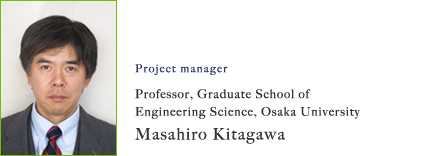- Proposed Research B01:
- Molecular spin quantum control

We will carry out pulse design using a new methodology called “resonator Hamiltonian engineering,” to realize a desired unitary transformation with high fidelity by controlling intricately coupled spin systems in a high-Q resonator and experimentally demonstrate it. We will also conduct studies on single-spin measurement techniques, as well as the design and development of molecules in coupled electron and nuclear spin systems and their coherent quantum control.
Temporal evolution of the nuclear and electron spins in molecules can be relatively freely controlled by external fields (resonant magnetic field pulses) based on the principle of magnetic resonance, and quantum algorithms (quantum circuits, unitary transformations) can be implemented. However, in large-scale quantum computers that outperform classical computers, fault-tolerant quantum computation is required in which quantum errors do not propagate in the circuit. Therefore, each quantum error must be limited to below a certain threshold. Spin control techniques using magnetic resonance developed in spectroscopy have not yet reached that level. In this research, we will develop resonator Hamiltonian engineering as a new methodology to precisely control temporal evolution by applying a desired resonant magnetic field waveform to molecular spins in the resonator in order to realize high-fidelity quantum circuits. The measurement of single spins is considered necessary for fault-tolerant quantum computation. To achieve such measurement, we willdevelope spin measurement techniques based on principles different from those of conventional magnetic resonance, such as coupling with a near-field probe and other physical (mechanical or optical) systems. We are also studying the coherent control of coupled electron and nuclear spin systems to develop a new quantum computation platform using the nuclear spins in molecules as quantum memories and electron spins for fast quantum computation, and to develop molecular systems suitable for these purposes.
Details : 「Publications」














